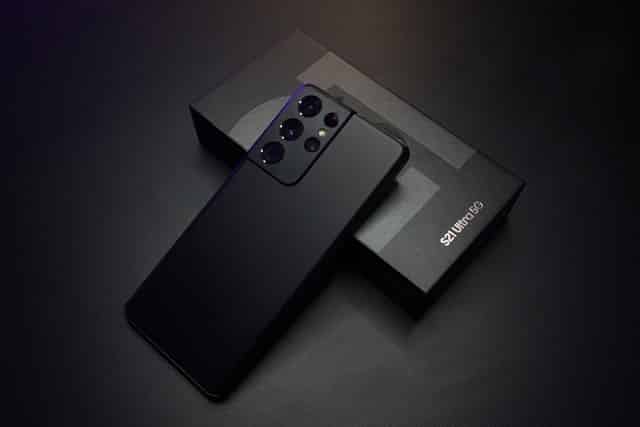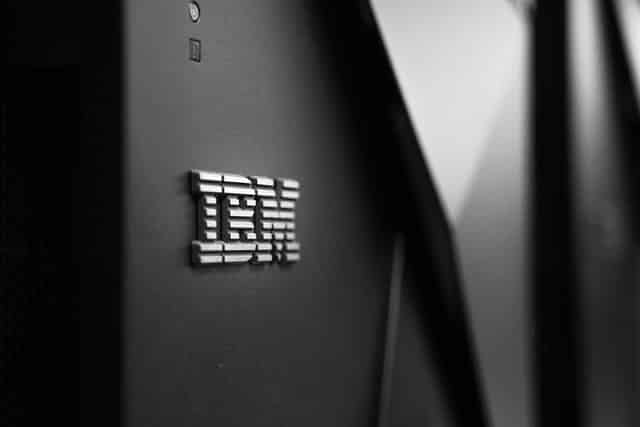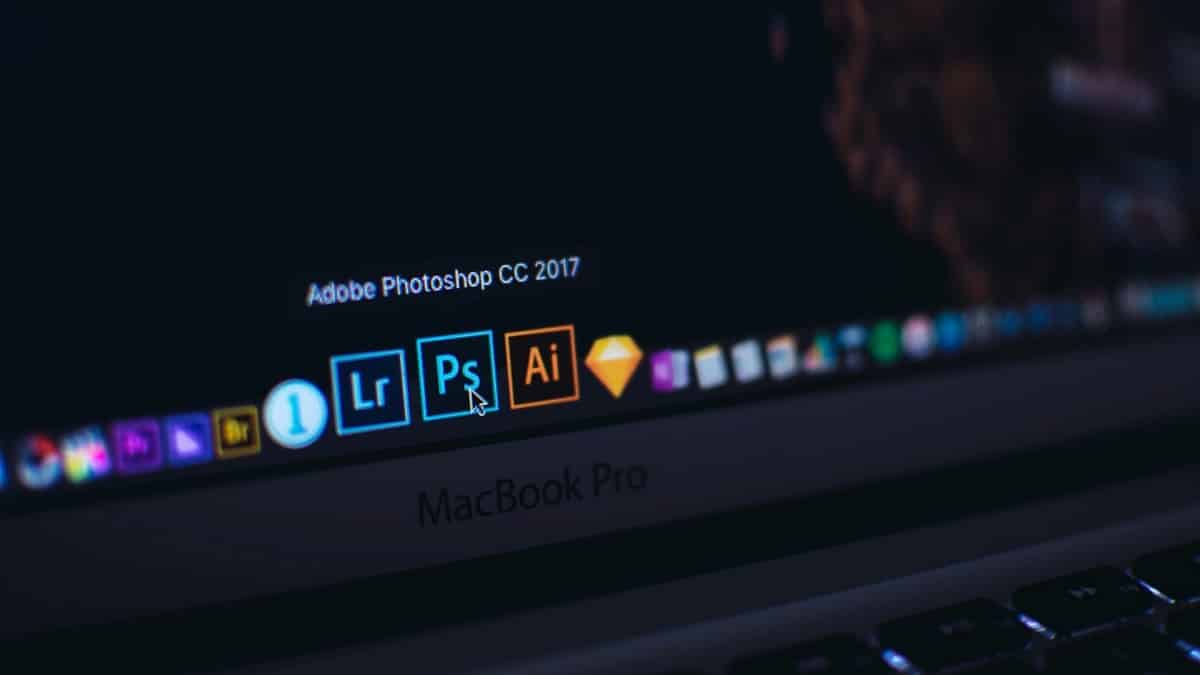Microsoft is the world’s 2nd most valuable public company, with a $2 trillion valuation. This tech company based in Redmond, Washington, was founded in 1975 by Bill Gates and Paul Allen and went public in 1986. Since its founding, Microsoft has revolutionized the operating system (OS) market with MS-DOS and Windows.
In April 2019, Microsoft became the third public company globally to reach the $1-trillion market cap after Apple and Amazon. It is ranked 15th-largest public company globally on Forbes’ Global 2000 list for 2021, with over 163,000 employees. In 2020, Microsoft generated $153.3 billion in revenues and a profit of $51.3 billion. [1]
Microsoft offers innovative software products, including MS Windows, Microsoft Office, and the Edge web browser. Its most expensive acquisitions include Skype for $8.5 billion and LinkedIn for $26.2 billion.
Microsoft also offers cloud computing services via Azure, personal computers, and Xbox game consoles. It competes with established brands like Google, Apple, and Amazon and newcomers like VMware, Salesforce, and Mozilla. [2]
Here is an in-depth analysis of Microsoft’s top 15 competitors and alternatives:
Microsoft competes with several companies in three segments:
- Personal Computing
- Productivity and Business Processes
- Intelligent Cloud
1. Apple
Year founded: 1976
Headquarter: Cupertino, California
Apple is one of the world’s most valuable tech brands that offer consumer devices like iPhone, iPad, iPod, Mac, and wearables. These products compete with Microsoft’s PCs and tablets. Apple also develops iOS, which rival Microsoft Windows. In 2020, Apple had 137,000 employees and generated $274 billion in revenues.
Apple and Microsoft are the only public companies with over $2 trillion market cap. But Apple is more valuable than Microsoft and outperforms its rival in the smartphone and tablet markets. Apple devices are uniquely designed and powered by iOS, the second most popular OS globally after Windows.
Microsoft Windows powers 9 out of 10 desktops and laptops. In 2020, Apple sold 194 million iPhones and 71 million iPads. The ever-increasing popularity of Apple’s devices makes it the top competitor for Microsoft. [3]

2. Sony
Year founded: 1946
Headquarter: Tokyo, Japan
Sony is a Japanese consumer electronics brand that manufactures and sells smartphones and gaming consoles. The company’s PlayStation is the top competitor and alternative to Microsoft’s Xbox. In 2020, Sony had over 114,000 employees and saw a 9% increase in revenue to $82.5 billion. Its net income for the fiscal year 2020 grew 101% to $10.7 billion.
Sony and Microsoft are the top players in the gaming sector. PlayStation controls 40% of the market, making it the second most popular player globally after Microsoft’s Xbox.
The Japanese tech giant released PlayStation 5 in Nov 2020 and sold 2.3 million units from Apr to Jun 2021. It expects to sell 14.80 million units globally in fiscal 2021. [4]
In Jun 2021, Microsoft unveiled the latest E3 Xbox. Microsoft’s Game Pass subscription allows gamers to access Xbox for only $70 per release. It is cheaper than Sony’s offering. But Sony’s PlayStation is still the best alternative to Microsoft’s Xbox. [5]

3. Samsung
Year founded: 1938
Headquarter: Seoul, South Korea
Samsung is one of the world’s largest producers of consumer electronics, including PCs, tablets, and smartphones. Galaxy Z Fold 2 and Microsoft’s Surface Duo are the best foldable phones on the market. But Samsung is more specialized in consumer electronics than Microsoft. In 2020, Samsung generated $212.3 billion in revenues with a net income of $23.7 billion. [6]
Microsoft and Samsung have been competing for decades. In 2014, Microsoft sued Samsung for failing to pay $6.9 million in interest on its $1 billion in patent royalties. The South Korean tech giant will release the next Galaxy Z model in the second half of 2021.
The new Galaxy Z Flip 3 and Galaxy Z Fold 3 will have the first-ever S Pen design and cost $2,200 for Fold and $1,200 for Flip. Both will debut at a lower cost than previous models and can poach Surface Duo’s users. Samsung is one of Microsoft’s top competitors in personal computing. [7]

4. Mozilla
Year founded: 1998
Mountain View, California
Mozilla is a tech company that develops open-source software products, including web browsers, bug tracking systems, and other Internet-related apps. It operates a non-profit organization, which works with a global community of open-source developers.
But Mozilla also engages in business for profit with more than 1000 employees. It generates around $450 million in revenues annually.
Mozilla’s web browser Firefox is one of the top competitors for Microsoft Edge. In June 2021, Firefox had a market share of 6% in the US, while Microsoft’s Edge had an 11.77% share. But they lag behind Chrome and Safari.
Firefox is the second most popular browser in Europe with a 12% market share, behind Chrome. Mozilla Firefox is a worthy competitor for Microsoft Edge. [8]

5. Logitech International
Year founded: 1981
Headquarter: Lausanne, Switzerland
Logitech is the world’s leading manufacturer of computer accessories, including keyboards, mice, webcams, Bluetooth speakers, and more. Microsoft also develops and sells these products, making this Swiss company one of its top competitors. Logitech has around 7,000 employees.
Logitech has seen a significant increase in demand in the past two years. Its sales surged 7% to $2.98 billion in the fiscal year ended in Apr 2020. For fiscal 2021, Logitech’s global revenue increased by 76% to $5.25 billion. Its 2021 revenue was the highest ever in the company’s 29 years history. Logitech’s experience and ever-growing earnings make it a worthy competitor for Microsoft. [9]
Microsoft’s Competitors and Alternatives in Productivity and Business Processes
Microsoft’s productivity and business processes segment include Microsoft 365, LinkedIn, and other enterprise solutions.

6. Google
Year founded: 1996
Headquarter: Mountain View, California
Google is the pioneer in Internet services. For nearly 25 years, Google has evolved and expanded to become one of the most iconic tech companies of the 21st century. In 2020, Google had around 119,000 employees and generated $160.7 billion in revenues.
Google has a diversified portfolio and competes with Microsoft across the board. It is the leading search engine, followed by Microsoft Bing. Google Chrome competes with Microsoft Edge, GCP vs. Microsoft Azure, and Microsoft 365 vs. Google Workspace.
Both Google Workspace and MS 365 offer tons of apps and features, but Google’s product is cheaper. Google Workspace plans cost between $6 and $18 per user per month, while the pricing for Microsoft 365 plans ranges from $5 to $57 per user per month. Google competes with Microsoft in all three segments. [10]

7. IBM
Year founded: 1911
Headquarter: Armonk, New York
IBM is one of the oldest software developers globally. In 1980, IMB relied on Microsoft’s OS to power one of its first personal computers. The history of the two companies has intertwined ever since. In 2020, IBM had over 350,000 employees and generated $73.6 billion in revenues. But its revenue has been declining in the past three years.
Like Microsoft, IBM evolved from software development to consulting and IT service providers for businesses. It provides enterprise-level process automation, data recovery, networking, and digital transformation solutions.
Today, IBM serves 47 of the Fortune 50 companies. The tech giant also offers cloud services, but it controls less than 2% of the IaaS public cloud market share. With over 100 years in the sector, IBM is the most experienced Microsoft competitor. [11]

8. Cisco
Year founded: 1984
Headquarter: San José, California
Cisco is a tech company that develops and sells networking and telecommunications hardware and software. It also provides IT services and solutions to help businesses streamline their processes and enhance productivity.
The company has 76,000 employees, about half Microsoft’s workforce. For full-year 2020, Cisco’s revenue was $49.3 billion with a net income of $11.21 billion.
Cisco’s software products for business include automation, analytics, and security solutions. They overlap and compete with Microsoft’s Office and cloud-based offerings for enterprises. In the first half of 2021, software subscriptions accounted for 81% of Cisco’s total software revenue.
With an ARR of over $14 billion, Cisco is now one of the largest software providers in the industry. The tech giant also plans to acquire Sedona Systems and Socio Labs in 2021 to bolster Webex Events. These acquisitions will increase Cisco’s competitive edge over Microsoft. [12]
9. VMware
Year founded: 1998
Headquarter: Palo Alto, California
VMware is a tech company specializing in cloud computing and virtualization technology. The company has over 24,000 employees and operates from 125 locations spread across the world.
For the full year 2020, VMware’s revenue increased 9% to $11.8 billion with a 44% surge in SaaS and subscription sales. The company’s subscription now delivers more revenue than its on-premises license.
The company offers solutions that help businesses boost efficiency and productivity with no tech assistance. VMware also provides a scalable Remote Work Solutions to help organizations manage their remote teams. Companies can use VMware Workspace One to access productivity tools.
Dell controls 81% of VMware, which has benefited VMware for years. But Dell seeks a spin-off of its equity ownership in VMware by Sept 2021. Losing Dell’s backing can undercut VMware’s competitive edge over Microsoft. [13]
10. SAP SE
Year founded: 1972
Headquarter: Walldorf, Baden-Württemberg, Germany
SAP is one of the most valuable tech companies globally, with a brand value of $57.58 billion. It offers ERP software that helps businesses manage their operations and customer relations. In 202, SAP had over 102,000 employees and generated $32 billion in revenues with a net income of $6 billion. [14]
SAP’s ERP competes with Microsoft Dynamics 365 in the business services market. It is cheaper than Dynamics 365 and allows businesses to build customized systems with advanced features.
The platform also integrates with third-party apps and offers a quicker launch time than Dynamics 365. In 2015, SAP launched S/4HANA that provides advanced data analytics and support for cloud deployment. SAP is the best alternative to Microsoft Dynamics. [15]
11. Salesforce
Year founded: 1999
Headquarter: San Francisco, California
Salesforce is a global leader in customer relationship management (CRM) services. Its industry-leading CRM software automates business processes, including sales and marketing. Salesforce overtook Microsoft in 2019 and now controls 18.4% of the global public cloud SaaS market.
Salesforce has more than 60,000 employees and around 150,000 developers and organizations on its integrated platform. In 2020, Salesforce generated $21.25 billion in revenues – 34% from its Sales Cloud and 15% from Marketing Cloud.
Its Service Cloud business contributes 30% of total revenue. Salesforce is a specialist in CRM and the best alternative to Microsoft. [16]
12. Red Hat
Year founded: 1993
Headquarter: Raleigh, North Carolina
Red Hat is a leading provider of open-source solutions for business, including Linux. In 2018, IBM acquired Red Hat for $34 billion and now operates as IBM’s subsidiary. Red Hat’s revenue increased 18% in 2020 and contributed 5% of IBM’s $73.6 billion revenue.
Microsoft has waged war against open-source software for decades, with Red Hat as its primary target. But the ever-increasing popularity of Red Hat’s Linux prompted Microsoft to soften its stance.
Most cloud technologies are based on Linux, which gives Red Hat a significant advantage over Microsoft. As a subsidiary of IBM, Red Hat has enough resources to challenge Microsoft’s dominance in the cloud networking market. [17]
Microsoft’s Competitors and Alternatives in Intelligent Cloud
Microsoft Azure is the second most popular cloud computing platform, with 17% of the market. It serves more than 5 million organizations and competes with AWS, Alibaba Cloud, Google Cloud Platform, and Oracle Cloud in the enterprise cloud market.
13. Amazon Web Service (AWS)
Year founded: 2006
Headquarter: Cupertino, California
AWS is the global leader in public cloud services, with 77 availability zones across 245 countries. It is a subsidiary of e-commerce giant Amazon and provides computing, database, analytics tools, and storage services for businesses.
AWS controls 32.4% of the global cloud market, but Microsoft is the world’s largest enterprise cloud vendor. Azure delivers $14.3 billion per quarter, while AWS makes around $10.8 billion in quarterly revenues.
With more than 175 fully featured services, AWS is the most comprehensive cloud platform globally. Amazon Web Service is Azure’s top competitor and alternative. [18]
14. Oracle Cloud
Year founded: 1977
Headquarter: Redwood City, California
Oracle Cloud is one of the leading enterprise public cloud platforms globally. It allows businesses to manage, store, and leverage their data and competes with Microsoft Azure. This cloud service is a subsidiary of Oracle, which employs around 136,000 people worldwide.
Oracle’s revenue for the fiscal year ended May 2021 was $40.5 billion, a 3.61% increase from 2020.
Oracle Cloud Platform is ranked sixth in the enterprise public cloud niche and controls 10% of the market. But the company’s revenue growth is lower than Microsoft.
Its revenue increased by only 2% for nine months between May 2020 and Feb 2021, while Azure reported double-digit growth for several quarters. Oracle Cloud offers highly scalable and reliable cloud computing solutions, making it one of the best alternatives to Microsoft Azure. [19]
15. Alibaba Cloud
Year founded: 2010
Headquarter: Redmond, Washington
Alibaba Cloud is a subsidiary of Alibaba Group, a Chinese e-commerce giant. It is the third-largest cloud service provider globally, with around a 7% market share.
The main advantage for Alibaba Cloud is its dominance of the Asian market. It is giving Azure a run for its money in Asia. Alibaba Cloud uses Cloud Enterprise Network (CEN) for customers to control the latency and bandwidth of multi-regional applications.
This functionality makes Alibaba Cloud one of the best alternatives to Microsoft Azure for multinational corporations. [20]
References & more information
- Murphy, A. (2021, May 13). Global 2000. Forbes
- Segal, T. (2021, Jul 30). Who are Microsoft’s (MSFT) Main Competitors? Investopedia
- Lahiff, K. (2021, Jun 24). Microsoft vs. Apple: Traders debate which $2 trillion stock is the better bet. CNBC
- Kyodo, J. (2021, Aug 5). Sony raises fiscal 2021 profit outlook on the strong entertainment business. Japan Times
- Tassi, P. (2021, Jun 11). Microsoft Is Building Something Sony, Nintendo, Google And Amazon Can’t Match. Forbes
- Ismail, A. (2021, Jun 18). Microsoft Surface Duo vs. Samsung Galaxy Z Fold 2: Which foldable wins? Tom’s Guide
- Heater, B. (2021, Aug 6). What to expect from Samsung’s next Unpacked? Tech Crunch
- Liu, S. (2021, Jul 20). US desktop internet browsers market share 2015-2021. Statista
- Workflow News (2021, Jun 9). Work from Home Results in $5B Revenue for Logitech in FY 2021 – 76% Increase From 2020. Workflow
- Bott, E, (2021, Jun 14). Microsoft 365 vs. Google Workspace: Which productivity suite is best for your business? ZDNet
- Healy, W. (2020, Nov 4). Better Buy: Microsoft vs. IBM. The Motley Fool
- Narcisi, G. (2021, May 19). Cisco Security, Webex See ‘Record-Breaking’ Growth; Software Run-Rate Soars Past $14B. CRN
- Great Speculations (2021, Jun 21). VMware’s Stock to See Moderate Growth? Forbes
- Liu, S. (2021, Mar 22). SAP’s global revenue 2001-2020. Statista
- O’Connor, E. (2021, Jun 4). Can Microsoft Dynamics 365 Replace SAP? EPC Group
- Liu, S. (2021, Mar 30). Salesforce revenue 2010-2021. Statista
- Miller, R. (2021, Apr 27). Red Hat CEO looks to maintain double-digit growth in the second year at the helm. Tech Crunch
- Evans, B. (2020, Aug 20). Cloud Revenue: Microsoft Bigger than Amazon + Google, 2X Bigger than IBM. Cloud Wars
- Great Speculations (2021, Jun 10). Oracle’s Stock to Weaken due to Mixed FY 2021 Results? Forbes
- Nunez, S. (2020, Jul 27). 6 ways Alibaba Cloud challenges AWS, Azure, and GCP. InfoWorld
- Featured Image by Tadas Sar












Add comment